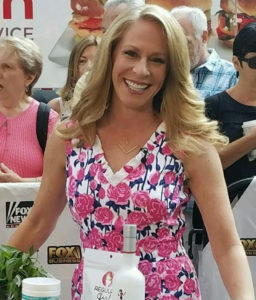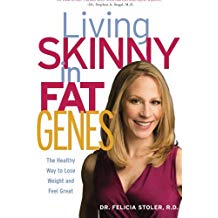 One day we hear coffee is good for you and the next day it’s responsible for creating fat cells. Who are we to believe? Why is it that some foods and ingredients are deemed health heroes, when other foods and ingredients are villainized?
One day we hear coffee is good for you and the next day it’s responsible for creating fat cells. Who are we to believe? Why is it that some foods and ingredients are deemed health heroes, when other foods and ingredients are villainized?
Felicia Stoler, registered dietitian nutritionist and author of “Living Skinny in Fat Genes”says most people are just catching the headlines about certain foods and nutrients and they aren’t always accurate. Since few of us have the time it takes to do our own research to confirm if the source on the Internet is telling the truth about what we are putting on our plates, Stoler joined us on Late Night Health to shed light on the foods that have gotten a bad rap that is undeserved and explains why popular breakfast foods like eggs, yogurt and coffee are actually healthy for you to include in your diet! She also discussed misinformation on additives or ingredients that sound scientific or too hard to pronounce. Here’s some commonly misunderstood but important ingredients and additives she noted that you may be avoiding but don’t need to:
Ascorbic Acid:Sounds like a science experiment you should avoid but it’s actually just vitamin C used in foods and supplements to boost the vitamin C content, increase shelf life and act as a preservative, antioxidant and color stabilizer (like the last time you added lime to guacamole!).
Carrageenan:Hard to say and spell, this commonly used ingredient that comes from red seaweed is natural, non-toxic and highly sustainable. You’ve likely consumed it if you’ve eaten sushi, as it’s in nori, the seaweed most often used to wrap it. Also used in many other foods as a key ingredient including yogurt, ice cream, sour cream, cottage cheese, infant formula, coffee beverages and creamers and nutritional drinks. Human clinical research suggests it may play a role in lowering cholesterol, reducing inflammation and fighting colds and viruses.
Palm Oil:The very name may make you hesitate as the word “saturated fat” flashes in your mind, but it is actually the most widely consumed, edible fat in the world and is found in everything from lipstick to cookies. Of the tropical oils, it’s the most sustainable too, and most commonly used replacement for the evil trans fats. Additionally, in recent years, it has been linked to several health benefits, including protecting brain function, reducing heart disease risk factors and preventing vitamin A deficiency.
Read more about food scares and food facts at Felicia Stoler’s blog:
https://americashealthwellnessexpert.com/
Listen to Felicia and Mark here:
Food Fact or Scare Tactic?
Food Fact or Scare Tactic? Part 2




